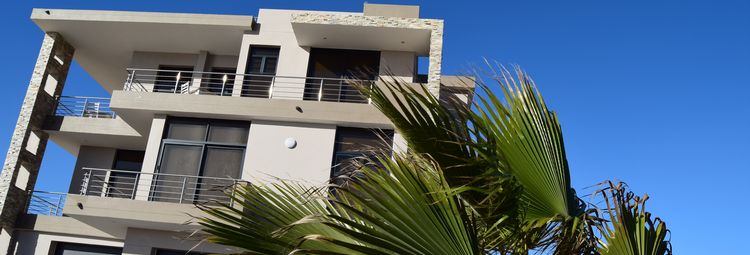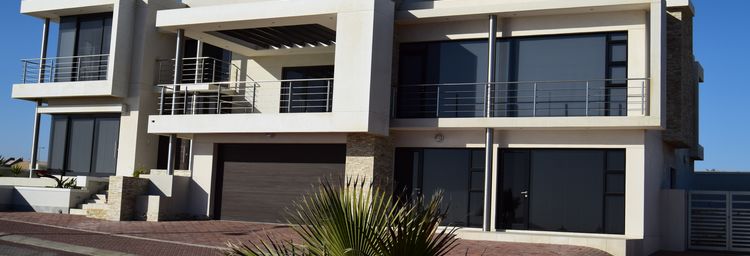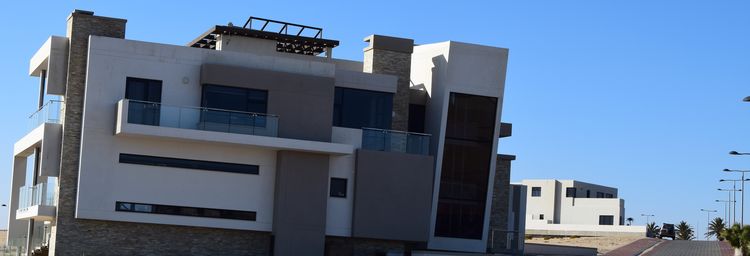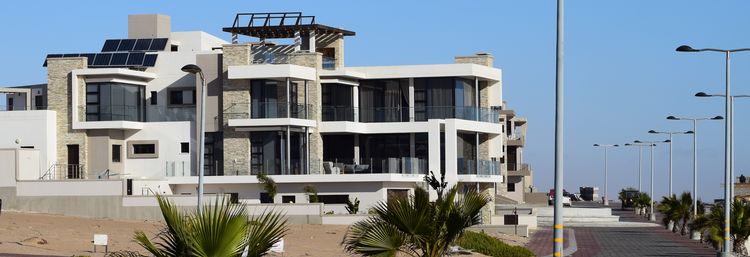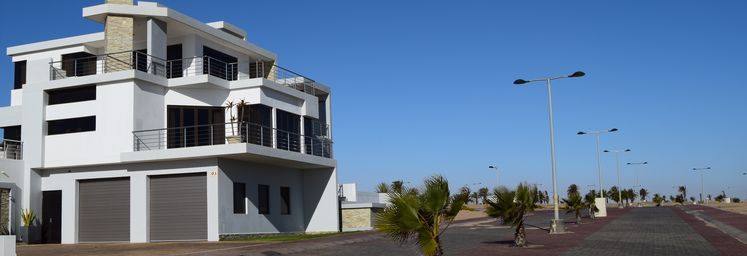Government
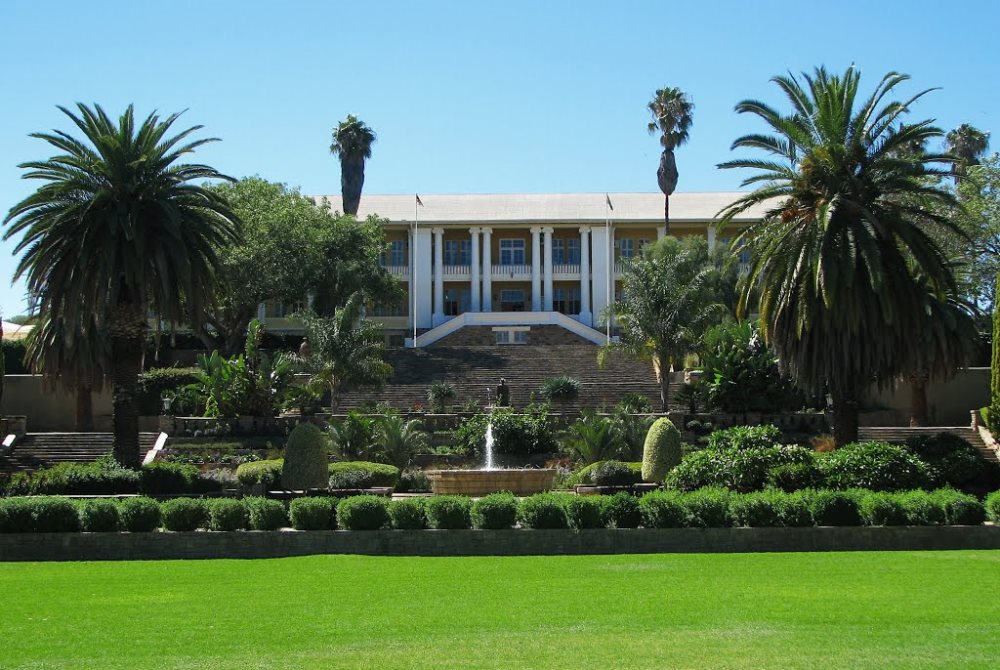 Namibia is ruled by a Multiparty Parliament and has a democratic Constitution that is highly regarded by the international community. The Government’s policy of national reconciliation and unity, embraces the concepts of tolerance, respect for differing political views and racial and ethnic harmony. The constitution establishes a bicameral Parliament and provides for general elections every 5 years and regional elections every 6 years. Members of the 72–seat National Assembly are elected on a party list system on a proportional basis. Members of the 26-seat National Council are elected from within popularly elected Regional Councils.
Namibia is ruled by a Multiparty Parliament and has a democratic Constitution that is highly regarded by the international community. The Government’s policy of national reconciliation and unity, embraces the concepts of tolerance, respect for differing political views and racial and ethnic harmony. The constitution establishes a bicameral Parliament and provides for general elections every 5 years and regional elections every 6 years. Members of the 72–seat National Assembly are elected on a party list system on a proportional basis. Members of the 26-seat National Council are elected from within popularly elected Regional Councils.
The three branches of government are subject to checks and balances and provision is made for judicial review. The judicial structure in Namibia largely parallels that of South Africa and comprises a Supreme Court, the High Court, and lower courts. Roman-Dutch law has been the common law of the territory since 1919. The Executive branch comprises the Chief of State who is president of Namibia and the Cabinet which consists of members of the National Assembly.
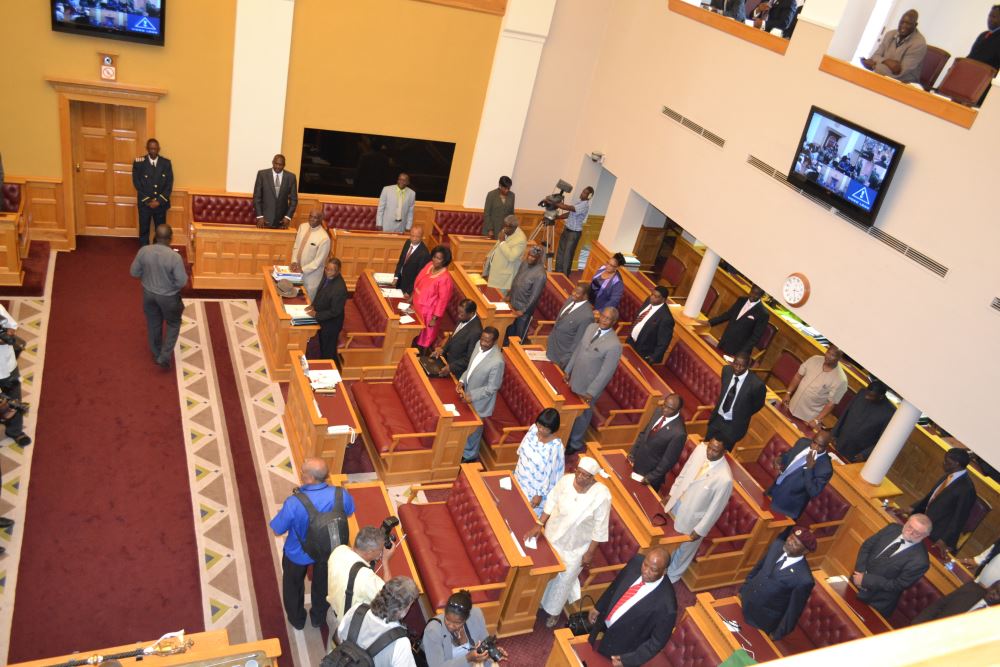 Dr. Sam Nujoma, the Founding Father of the Namibian Nation and leader of the liberation movement (Swapo), was elected democratically in free and fair elections as the first President of the Namibian republic in 1990. He served the Namibian nation tirelessly and created reconciliation amongst its people. In November 2004, the Founding Father announced his retirement and the Swapo Party democratically elected the Minister of Lands, Resettlement and Rehabilitation, Hifikepunye Pohamba to be the leader of the Swapo Party and candidate for the presidential elections. President Pohamba was elected by the Namibian people in free and fair democratic elections and inaugurated in March 2005 in conjunction with celebrations marking the country’s fifteenth anniversary.
Dr. Sam Nujoma, the Founding Father of the Namibian Nation and leader of the liberation movement (Swapo), was elected democratically in free and fair elections as the first President of the Namibian republic in 1990. He served the Namibian nation tirelessly and created reconciliation amongst its people. In November 2004, the Founding Father announced his retirement and the Swapo Party democratically elected the Minister of Lands, Resettlement and Rehabilitation, Hifikepunye Pohamba to be the leader of the Swapo Party and candidate for the presidential elections. President Pohamba was elected by the Namibian people in free and fair democratic elections and inaugurated in March 2005 in conjunction with celebrations marking the country’s fifteenth anniversary.
As a republic, Namibia is also a secular state guaranteeing the freedom of religion and media. It is divided into 13 administrative regions including Caprivi, Erongo, Hardap, Karas, Khomas, Kunene, Ohangwena, Okavango, Omaheke, Omusati, Oshana, Oshikoto, and Otjozondjupa. The constitution provides for the private ownership of property and for human rights protections and states that Namibia should have a mixed economy and encourage foreign investment. Namibia is a member state of the United Nations (UN), the Southern African Development Community (SADC), the African Union (AU) and the Commonwealth of Nations. Namibia became the 160th member of the United Nations on April 23, 1990, and the 50th member of the British Commonwealth upon independence.
President Hage Geingob
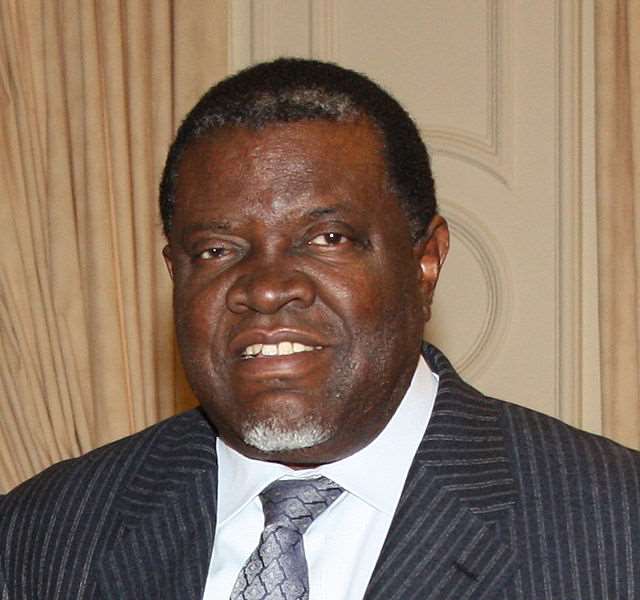 Hage Gottfried Geingob is the third and the current President of Namibia, in office since 21 March 2015. Geingob was the first Prime Minister of Namibia from 21 March 1990 until 28 August 2002, he was Minister of Trade and Industry from 2008 to 2012. He served as Prime Minister again from 4 December 2012 to 21 March 2015. Since 2007, he has been, Vice-President, and currently is the President of the South West Africa People’s Organization (SWAPO), Namibia’s ruling party.
Hage Gottfried Geingob is the third and the current President of Namibia, in office since 21 March 2015. Geingob was the first Prime Minister of Namibia from 21 March 1990 until 28 August 2002, he was Minister of Trade and Industry from 2008 to 2012. He served as Prime Minister again from 4 December 2012 to 21 March 2015. Since 2007, he has been, Vice-President, and currently is the President of the South West Africa People’s Organization (SWAPO), Namibia’s ruling party.
Geingob was born on 3 August 1941 in Otjiwarongo. He received his early education at Otavi and later in Windhoek. In 1960, he was expelled from Augustineum for having participated in a march to protest the poor quality of education. He was, however, re-admitted and was able to finish the teacher-training course in 1961. Subsequently, he took up a teaching position at the Tsumeb Primary School in Central Namibia but soon discovered that his thirst for knowledge was unlikely to be quenched in Namibia. He left his job to seek knowledge and instruction that could help him change the system. He, with three of his colleagues, walked and hitch-hiked to Botswana to escape the system. From Botswana, he was scheduled to go to Dar es Salaam, Tanzania, on a plane chartered by the African National Congress (ANC). However, this plane was blown up by the South Africans when it was still on the ground because the time bomb went off prematurely. As a result, Hage Geingob stayed on in Botswana where he served as Assistant South West Africa People’s Organization (SWAPO) Representative in Botswana (1963–64).
In 1964, Hage Geingob left for the United States to study at Temple University in Philadelphia, Pennsylvania, where he was granted a scholarship. Subsequently, he obtained a BA degree from Fordham University in New York in 1970 and an MA degree in International Relations from the Graduate Faculty of The New School, New York in 1974. In 1964, he was appointed SWAPO Representative at the United Nations and to the Americas. He served in this position until 1971. He travelled extensively, criss-crossing the United States, talking with people, addressing gatherings. In 1989, he was elected by the Politburo of SWAPO to spearhead SWAPO’s election campaign in Namibia. To carry out this assignment, he returned to Namibia with many of his colleagues on 18 June 1989, after 27 years’ absence from the country. As SWAPO’s Director of Elections, Hage Geingob along with other members of his directorate established SWAPO election centres throughout the country and spearheaded an election campaign which brought SWAPO to power in Namibia.
On 21 March 1990, Hage Geingob was sworn in as the first Prime Minister of the Republic of Namibia, and on 21 March 1995, he was again sworn in as the Prime Minister of Namibia for the second term. He served in this capacity for twelve years. Hage Geingob, as Prime Minister introduced modern management approaches to the running of the government. Geingob married Monica Kalondo on February 14, 2015. Hage Geingob Rugby Stadium in Windhoek is named after him.






